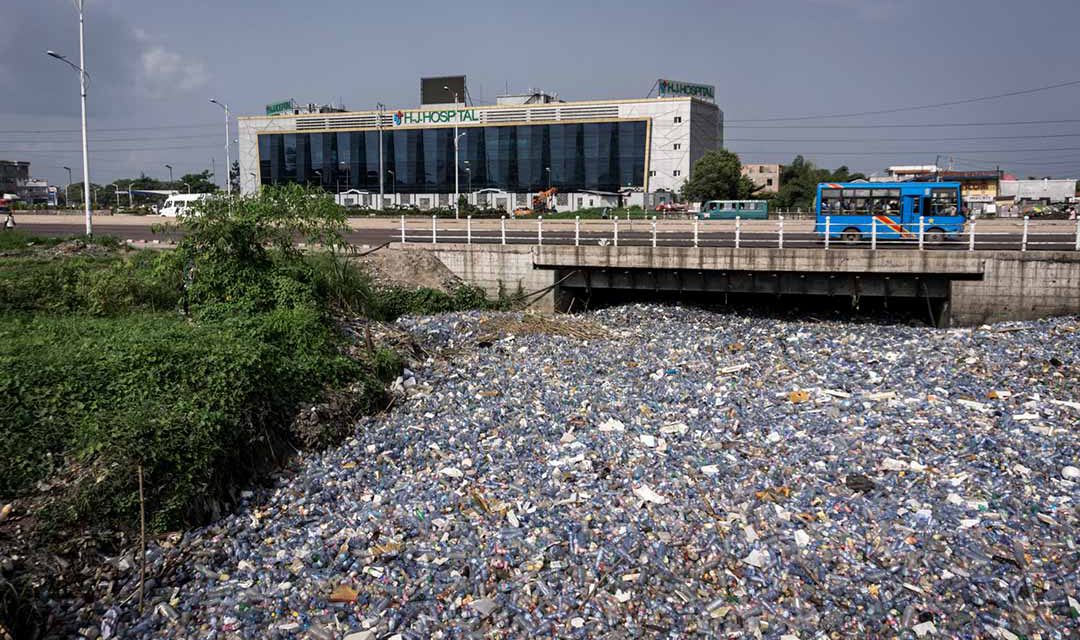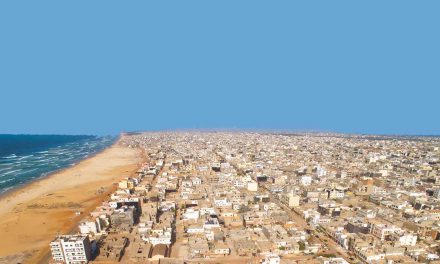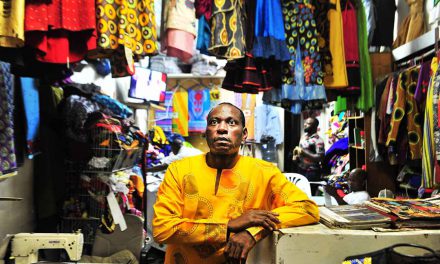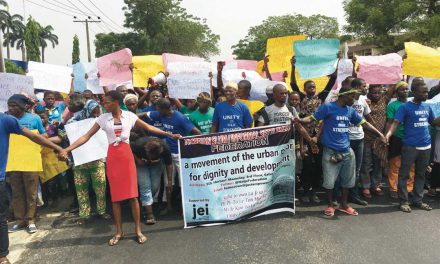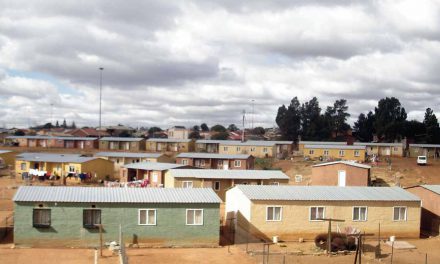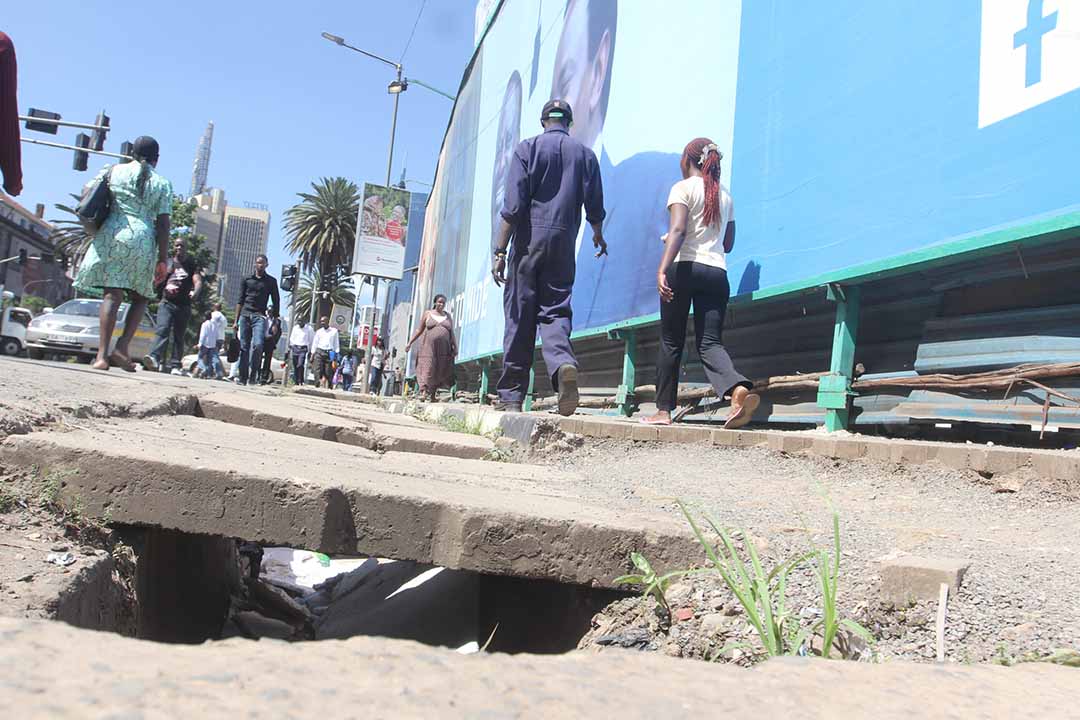
Open drainage along Kenyatta Avenue in the Nairobi city centre. IMAGE Jenipher Wachie.
Surging crime and broken dreams reveal the underbelly of this rapidly expanding east African capital
Michael Mwaura graduated from the University of Nairobi’s School of Business in 2009 and within two months secured a job with a leading audit firm in Nairobi, Kenya’s capital city. Despite being under pressure from his colleagues and peers to invest in a new car and rent a house in the posh Westlands Estate at Ksh35,000 ($350) a month, Mwaura opted to put up in a bedsitter in Kinoo, about 12 km from the Nairobi central business district, where he paid Ksh6,500 ($65) per month.
“I saved the difference – Ksh28,500 ($285) – with the intention of taking out a mortgage after five years,” says the 31-year-old Mwaura. “By 2015, I had saved enough to qualify for a housing loan of Sh7 million ($70,000). From the loan, I bought a piece of land and built a three-bedroomed maisonette in Ngong town. Life was good.”
But in June 2016, the father of two girls got an eviction order. He was given two weeks to vacate his home, said to be on land owned by a senior politician. “I broke down upon receiving the news,” says Mwaura. “I tried to follow up at the lands ministry as well as at the Nairobi city county lands office, but no help was forthcoming. At the lands ministry, I was told the land title deed that I had been given was fake, and I was a victim of land grabbers.”
Mwaura’s experience, says Simba Arati, an MP from the National Super Alliance, the main opposition party in Kenya, is typical of what thousands of Nairobi residents have gone through for many years. “This is a city that is dominated by blood-sucking cartels that have the blessing of a corrupt regime in the city council and at the national government level,” he told Africa in Fact.
The land-grab rot goes deep into the council’s administration. Soon after assuming power as the Nairobi city county governor in August 2017, Mike Sonko sent 15 senior county employees linked to a land-grabbing cartel on compulsory leave. Following allegations of corruption, some 200 county employees were also sent packing by the same city authority in October 2017. Investigations into land-grabbing claims are ongoing, according to Sonko.
Evans Kidero, the first Nairobi governor, says his successor is right to be concerned at the situation. The former county boss says a total of 1,180 pieces of public land were grabbed in Nairobi alone between 2013 and 2016. “The former city council and former councillors had the horrible habit of stealing land, and this is a classic example,” he told Africa in Fact.
But it is not just land grabbing that Nairobi city residents have to deal with. This January, Nairobi city county’s deputy governor, Polycarp Igathe, resigned after only four months in office, saying on Twitter that he had not won the trust of his boss – that is, Sonko. It is understood that Igathe and Sonko failed to agree on how best to deal with the growing number of street families who have been associated with insecurity in the city.
Igathe’s resignation coincided with the growing number of complaints about muggings in the city, even during the day. Citizens were also complaining of a surge in the population of hawkers in the city centre, and of increasing harassment by street families and beggars as they tried to go about their business in town.
Recently, there has also been an increased outcry over the sorry state of the roads around Nairobi’s central business district and in the suburbs, as well as about intermittent water supplies and an inadequate sewerage system. For example, water supplies in the city are 505,000 m3 per day, while demand is for 750,000 m3 per day, according to Nahashon Muguna, managing director of the Nairobi City Water and Sewerage Company. With these problems, many Nairobi residents are slowly coming to the conclusion that their city is being run down by the new regime.
The city has a population of nearly four million according to the last census by the Kenya National Bureau of Statistics in 2009. In 1980, the population was 862,000. This went up to 1,380,000 in 1990 and 3,237,000 in 2010. By 2020, the city’s population is expected to reach 4,792,000. According to the World Population Review, Nairobi’s population has been growing at an average rate of 20% since 1980.
The city’s systems – such as schools and healthcare – have not grown to accommodate the rapidly growing population, nor have job opportunities, says Emmanuel Manyasa, an economics lecturer at Kenyatta University. “This has forced those out of jobs to venture into shortcuts to make ends meet, such as robbery.”
For some decades Kenyans have seen Nairobi as a multi-ethnic centre of Kenyan culture. The city was “a modern capital with one of the world’s best digital financial innovation sectors”, according to a 2014 World Bank report on educational digital and mobile publishing around the world. As recently as 2017, Nairobi was on a Fortune 500 list – alongside Johannesburg, Casablanca, Lagos and Cairo – as one of the most appealing African destinations. Nairobi is also a leading destination for fast-moving consumer goods companies, according to an April 2017 report by Infomineo, a global business research company specialising in Africa and the Middle East.
In the past five years the city has attracted huge investment in real estate that has seen modern skyscrapers jutting up into the Nairobi skyline, with world-class restaurants and modern shopping malls built in and around the city. But for many residents these benefits have been accompanied by a sudden rise in crime.
“We are no longer secure, even during the day,” says Faridah Lwendo, 23, from Umoja Estate on the outskirts of Nairobi. “The other day my friend was grabbed by about six boys, who stole her gold earrings, necklaces, mobile phone and purse as people watched in broad daylight. Nairobi is no longer the “green city in the sun”, Lwendo, a banker in the city adds. “Thugs have literally taken over the town.”
Sonko, the current governor, disagrees that things have gone south under his watch. The sharp rise in mugging cases in the city is the work of his detractors, he says. “The youth mugging people in the CBD have been hired by my political rivals who want to portray me as a failure,” he said in a recent interview with Africa In Fact.
In January 2018, Sonko announced the establishment of a new anti-mugging unit to work with the police. During the press briefing in his city hall office to unveil the new squad he assured his constituents that his administration would resolve all their difficult living conditions “as soon as possible”. But to many Nairobi residents these are empty promises.
Ben Machuka, a fourth-year engineering student at the University of Nairobi, recalls a different and safer city only a few years ago. “During those glorious days, Nairobi never slept,” he says. “The rhythm was fast, day and night. We would go to a disco even past midnight without worrying that we would lose our mobile phones. Not anymore. Nairobians are no longer hospitable; anyone you see is a potential thief.”
Machuka doesn’t blame the Nairobi City County leadership, though. Nairobians failed themselves at the August 2017 polls, he says, because they voted for “quantity rather than quality and tribe and political party over qualifications”.
Back in Kinoo, Michael Mwaura’s house was eventually demolished and his family evicted. His lawsuit was never heard amid claims that the court files could not be traced. “In Kenya, this is common, especially if the matter under consideration touches on land issues. Files disappear, never to be found,” says Jackson Ondabu, a city lawyer.
Land-grab cartels working with the Nairobi City County have entered into “an illicit marriage” with senior officers from the lands and physical planning ministry and with members of the judiciary to con unsuspecting Nairobians by selling land they don’t own, he says.
Nairobi has not hosted an international meeting or conference in the past two years, says Emmanuel Nyangweso, a lecturer in development economics at Kenyatta University. “Nairobi has lost its sparkle to Kigali and Addis Ababa,” he told Africa in Fact. “This might not be corrected in the next decade if the current leadership is not toppled.”
Daniel Psirmoi is a senior parliamentary and political writer for The Standard Newspaper based in Nairobi, Kenya. He is part of team that covers the National Assembly and the Senate with his day to day job involving keeping tabs with what the legislators are up to and developing news stories and features. He also has interests in governance and sustainable community development.

